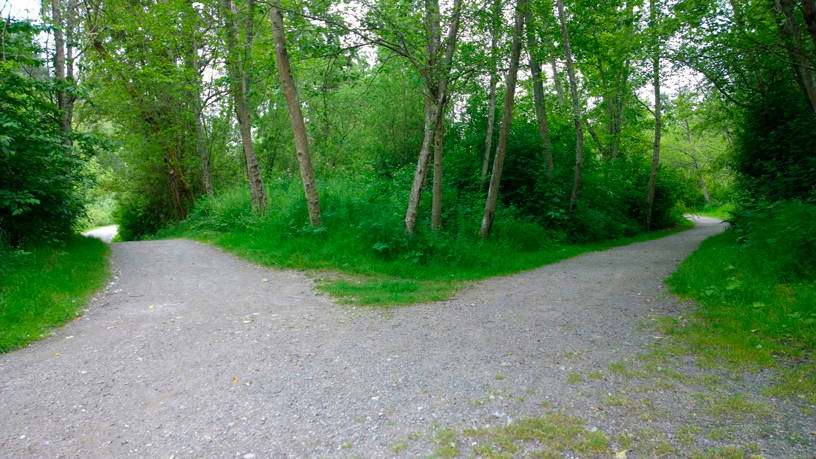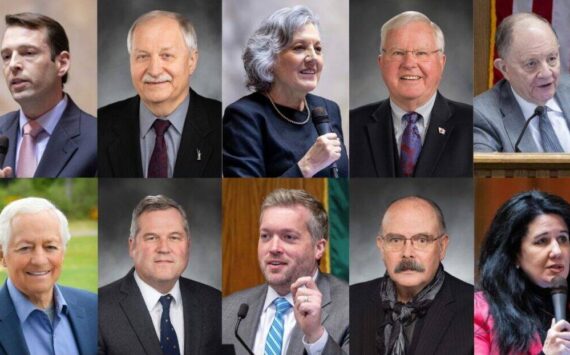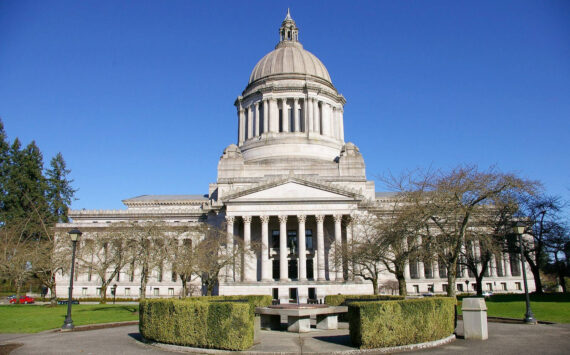By Morf Morford
Tacoma Daily Index
I grew up out in the country. My dad took me out hunting and fishing on a regular basis.
I spent massive amounts of time out in the woods, I built tree houses, splashed around in streams and watched wildlife and the change of seasons up close.
You can learn things out there that you cannot learn in cities or subdivisions.
You learn to be quiet, to observe things, to take care of yourself and to notice that, above all, you are part of a system vastly larger than yourself, far larger even than human concerns, fears, fantasies or aspirations.
If there is only one lesson you learn from the bare wilderness, it is that just one simple mistake – a wrong turn, an encounter with a bear too early in the spring, either with a bear cub or too abruptly after emerging from hibernation or even being unprepared for a shift in the weather, could be your last.
Blaming others in such a situation is futile, if not preposterous. Nothing matters ultimately, in such situations, more than getting home or to shelter (relatively) intact. I must admit that I barely made it home, soggy, frozen, bleeding and exhausted more times than I’d like to recall.
In general, a key principle of survival and effective hunting or fishing is to be prepared, take responsibility and leave as little mark on the environment – and yourself – as possible – and make it home from your adventure alive.
I find myself in the city and in the professional world now and find that these characteristics, I suppose they could be called “skills” still serve me well.
And I see that those who did not have that background flounder or are taken by surprise by things I have seen coming for weeks if not months.
A successful hunter, for example, learns to be still, to listen to the wind and the small movements of nature, always aware, always paying attention to the slightest shift, the smallest movement, how birds suddenly start, or stop chirping.
If you need a word for this, you could call it “situational awareness” which, besides being the foundation of effective hunting, is also a basic skill applicable in urban neighborhoods, in relationships and at work.
To be an effective hunter, for example, you must be prepared with equipment and attitude, and you must, in some sense, be prepared for any possible eventuality – and a key element of that is that you must prepare above all for the unexpected.
As I pay attention to current events, not just recently, but all the time, I am struck by how few people in public business or political or community leadership seem to have the slightest awareness, comprehension or, all too often, any real care for the people, institutions and community values they are called to, and paid to, embody, protect and serve.
We used to have a president, President Truman, whose motto was “The buck stops here”.
He, as president, was the final authority. No decision was passed along, no denial or avoidance emerged, no vague double-speak or evasions. “Straight talking” was his style.
Could we even imagine such a person almost anywhere in leadership in our culture today?
I’d have to look up what his political party was. It didn’t matter that much back then – but decency, honor and service did.
Now we have some, perhaps many, willing, even eager, to sacrifice the greater good, the environment, even their own integrity and reputations for the sake of their party.
We even have those who defy even basic ethics by taking advantage of difficult situations and inside information for personal gain.
Such behavior may not be technically illegal, but it is blatantly unethical and disgraceful for any public figure (https://www.allsides.com/story/4-senators-sold-stock-ahead-coronavirus-threat?).
We inhabit a world, or at least a culture, where in politics or business, or even baseball (!) where cheating, lying and betrayal have become the standard tools of the trade.
If there is anything you learn in the wilderness it is that cheating or deception of any kind can kill you. And an untrustworthy companion is far worse than no companion at all.
Nothing will get you killed, or lost, or worse, than an unreliable partner. This is true in business as much as in the wilderness.
“I don’t take any responsibility at all” is a statement you never want to hear from a hunting or business partner.
I’ve often thought that business or political leaders should spend time in true wilderness – not the plush resorts or catered retreats they are accustomed to – but a place where you live by your own will and wits, where your name or office or bank account stands meaningless in the frigid wind or an unexpected night caught unprepared or a confrontation with a hungry animal, like a cougar, who sees you long before you see it.
This is a set of skills that will serve you well in any setting. Being able to sift out the noise from the message, the truth from the false, the real from the fake, the poser or huckster from the honorable person will preserve you when those around you panic or freeze. Or turn against you.
As I mentioned, a successful hunter will sit quietly, paying attention to the slightest deviation which might be an indicator of approaching game.
The same principle holds true in the business world. A shift in customer preferences or a new trend could make you a fortune – or cost you your livelihood.
No strand stands alone in nature or business or in any community. Every act of ours ripples through our communities and workplaces.
Every act of betrayal – or courage – will be remembered, and will leave its mark.
“Nobody could have seen this coming” is not what you would hear from a reliable guide.
In our economy for example, the signs of weakness have been obvious for years. Our level of debt, our loss of core industries, our inequitable pay structure, our inadequate health care system, all painfully obvious now, were somehow obscured by our distractions and short-sightedness.
Long term economic solidity was sacrificed for short term profits. Basic economic principles were abandoned in pursuit of market share and blatant profiteering.
One of the ironies was that, up until recently, two aspects of the economy – the stock market and the (historically low) unemployment rate – were held up as indicators of “the strongest economy ever”.
Both are notoriously unreliable and not even remotely reflective of our economy. And both have imploded.
The stock market is a terrible indicator of widespread or stable economic health. The Dow Jones Industrial Average (DJIA) is, after all an average and it is an average of industrial production.
How much of our local economy is industrial production? Not much.
How much of our national economy is industrial production? Also not much.
The vast majority of our industrial production is either mechanized or outsourced.
Our industrial production and profits have little to no bearing on employment or stable market forecasts.
Only about half of all American have any investment at all in the stock market – and most of that is in mutual funds, not individual stocks.
It might be more helpful to think of it as a “market of stocks” as opposed to a “stock market”.
The rise or fall of the stock market has near zero relevance to the well-being of the average citizen.
Unemployment figures are of those seeking (and not finding) employment. They do not follow those under-employed, self-employed, gig-workers or those who for whatever reason, are not in the job market.
According to the AARP, 10,000 Boomers retire every day (and will for the next 10 years or so). Under normal circumstances there should be more jobs than people for the foreseeable future. For politicians to take credit for the “healthy job market” is ridiculous and mathematically false.
“Eat lunch or be lunch” is the bottom line of the wilderness.
It does not need to be the motto of our economy, even if it some times feels like it.





